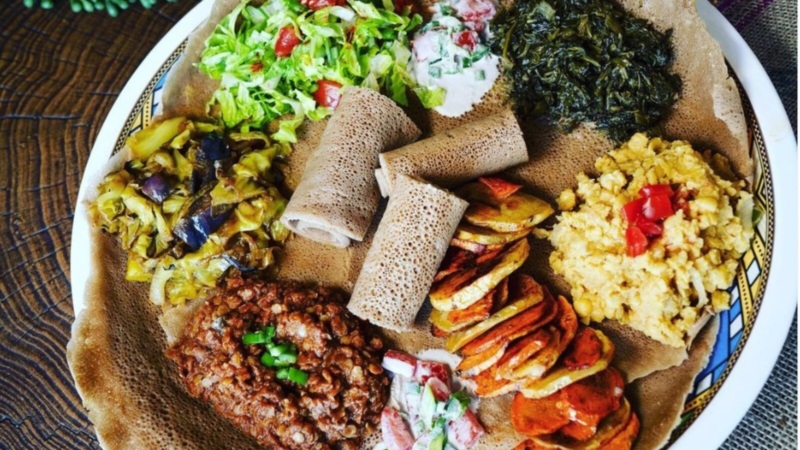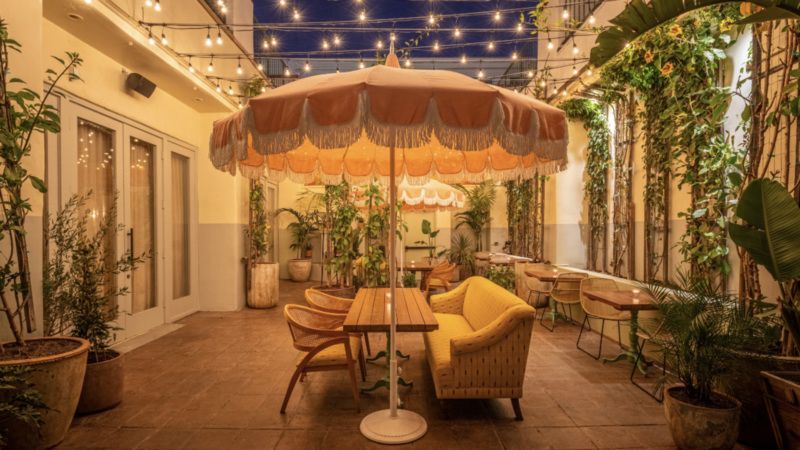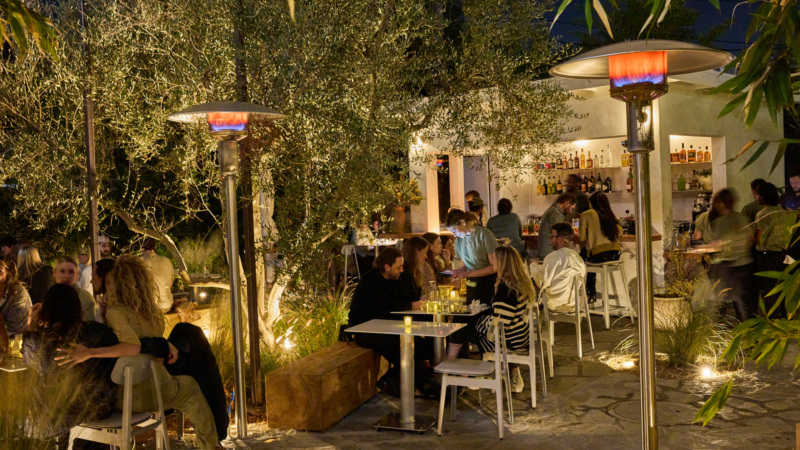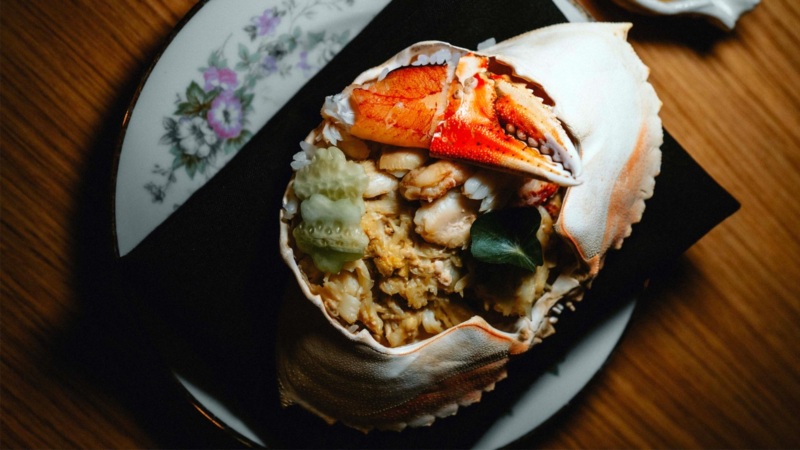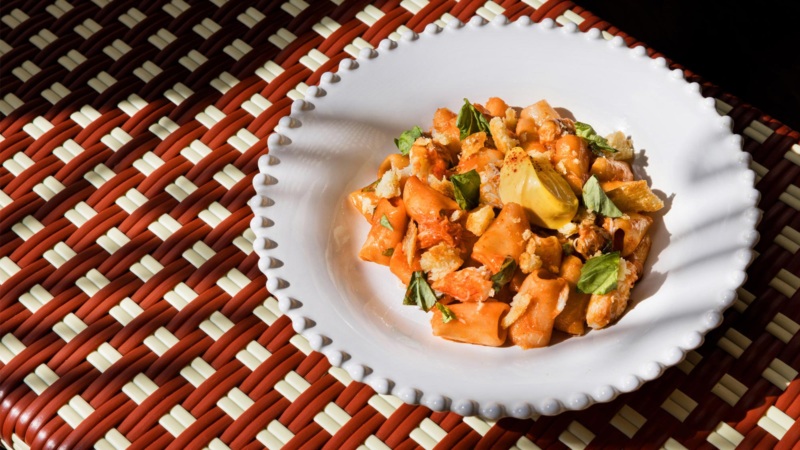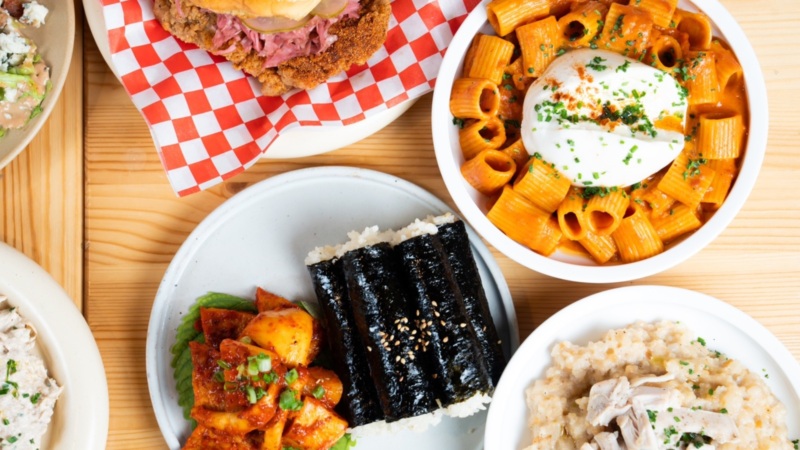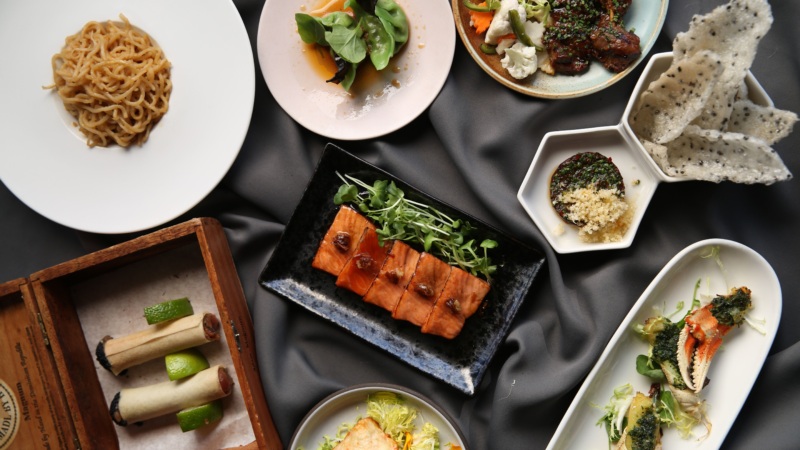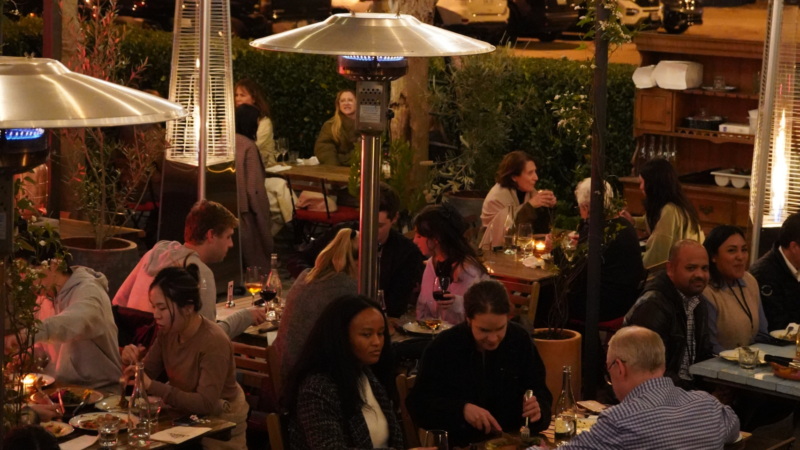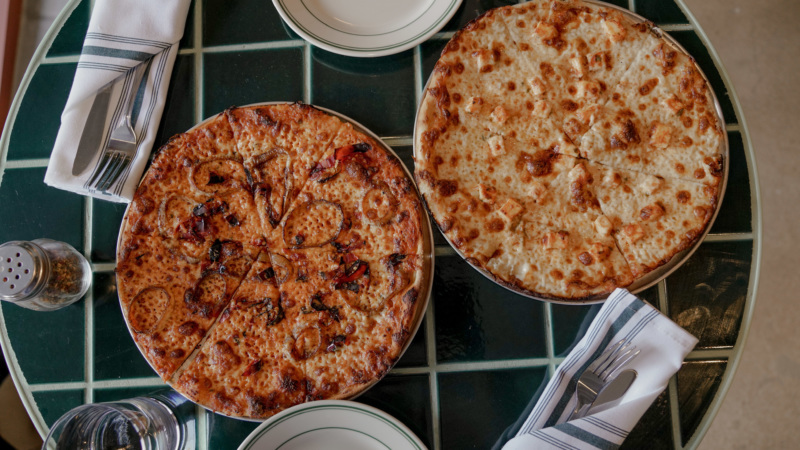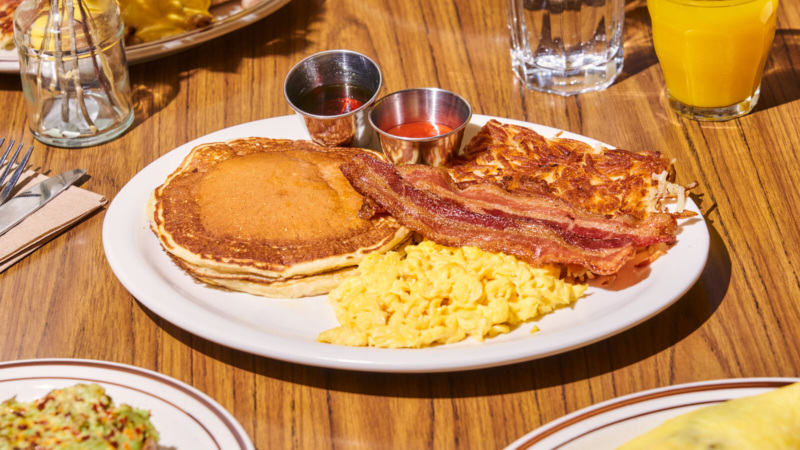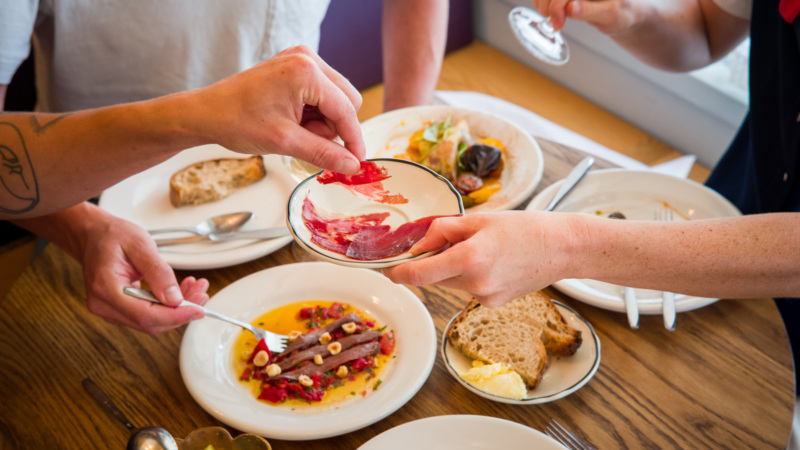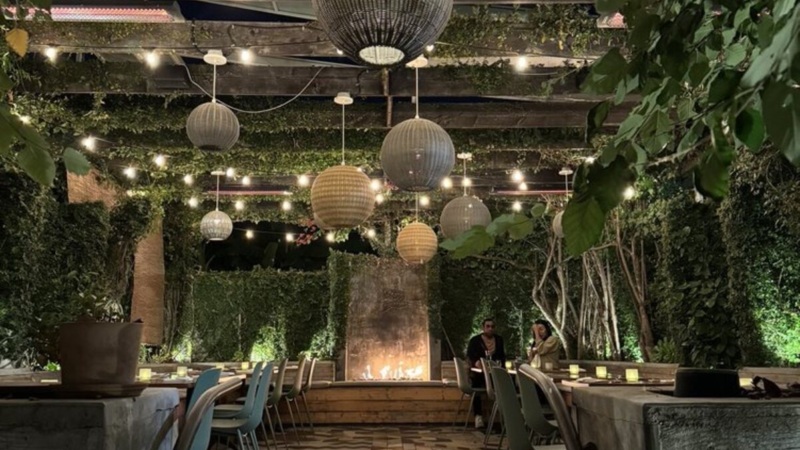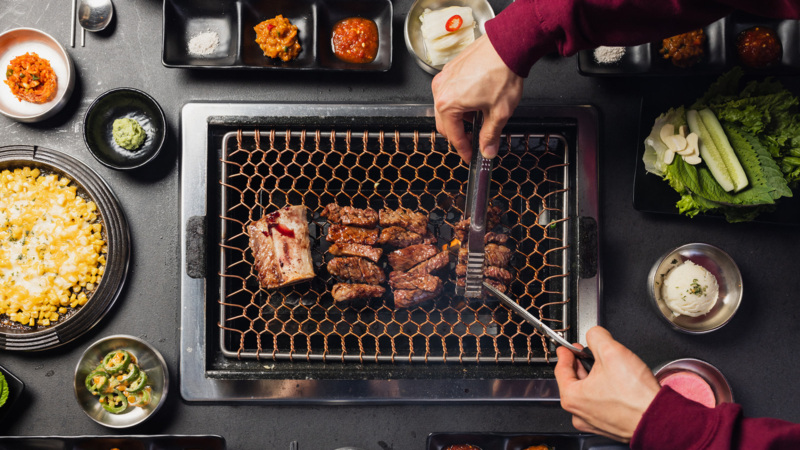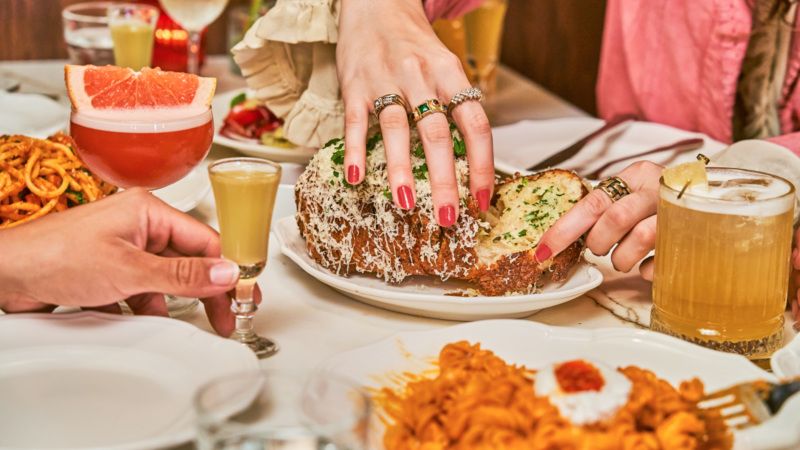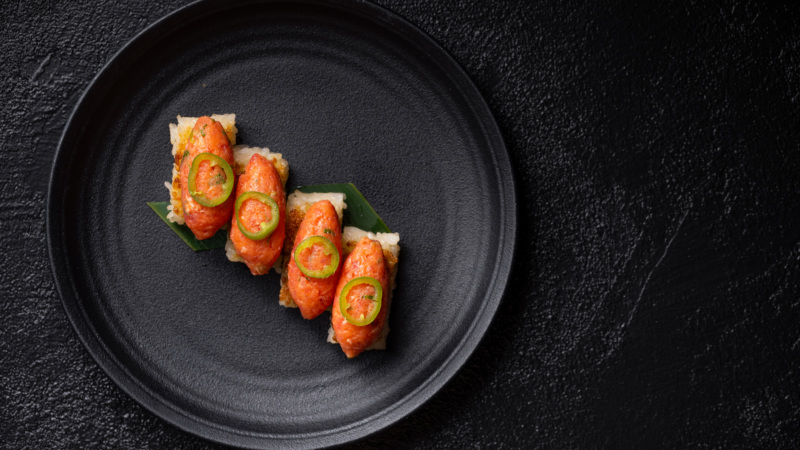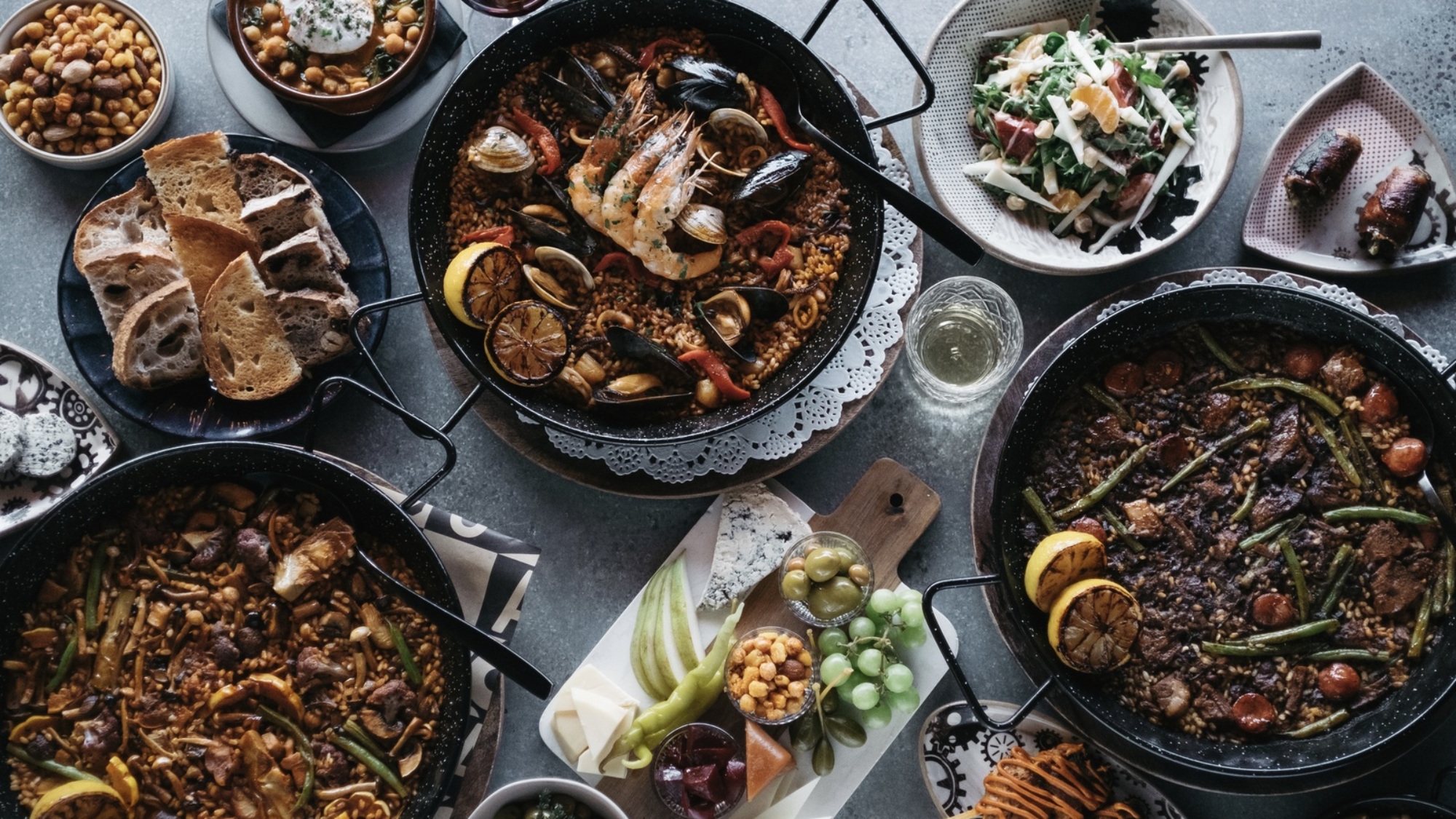
Nearly A Decade In, Gasolina Is Still Revving Its Engine
Woodland Hills may seem like a quieter corner of the San Fernando Valley, but Sandra Cordero likes it that way. The chef moved here a decade ago — it was the perfect place to start a family, she recalls, but there weren’t many local options for coffee and breakfast. So she decided to take matters into her own hands.
Cordero was born and raised in Amsterdam, but summers were for visiting her family’s farm in the Galicia region of Spain. Inspired by the land, Cordero began her culinary career at 15, working in restaurants around Amsterdam and New York, before winding up in L.A. 12 years ago to help open Japanese maid cafe Royal/T in Culver City. After working in a few more kitchens (Providence, Grace) she opened Gasolina in 2015. It’s been a hit with the neighborhood ever since, and remains firmly at the forefront of the new wave of Spanish restaurants opening across L.A.
We spoke with Cordero and sommelier Scott Baker about how the cafe has evolved over the past eight years, their brand-new pintxos spot in Santa Monica, and what the future holds for the team.
This interview has been edited for length and clarity.
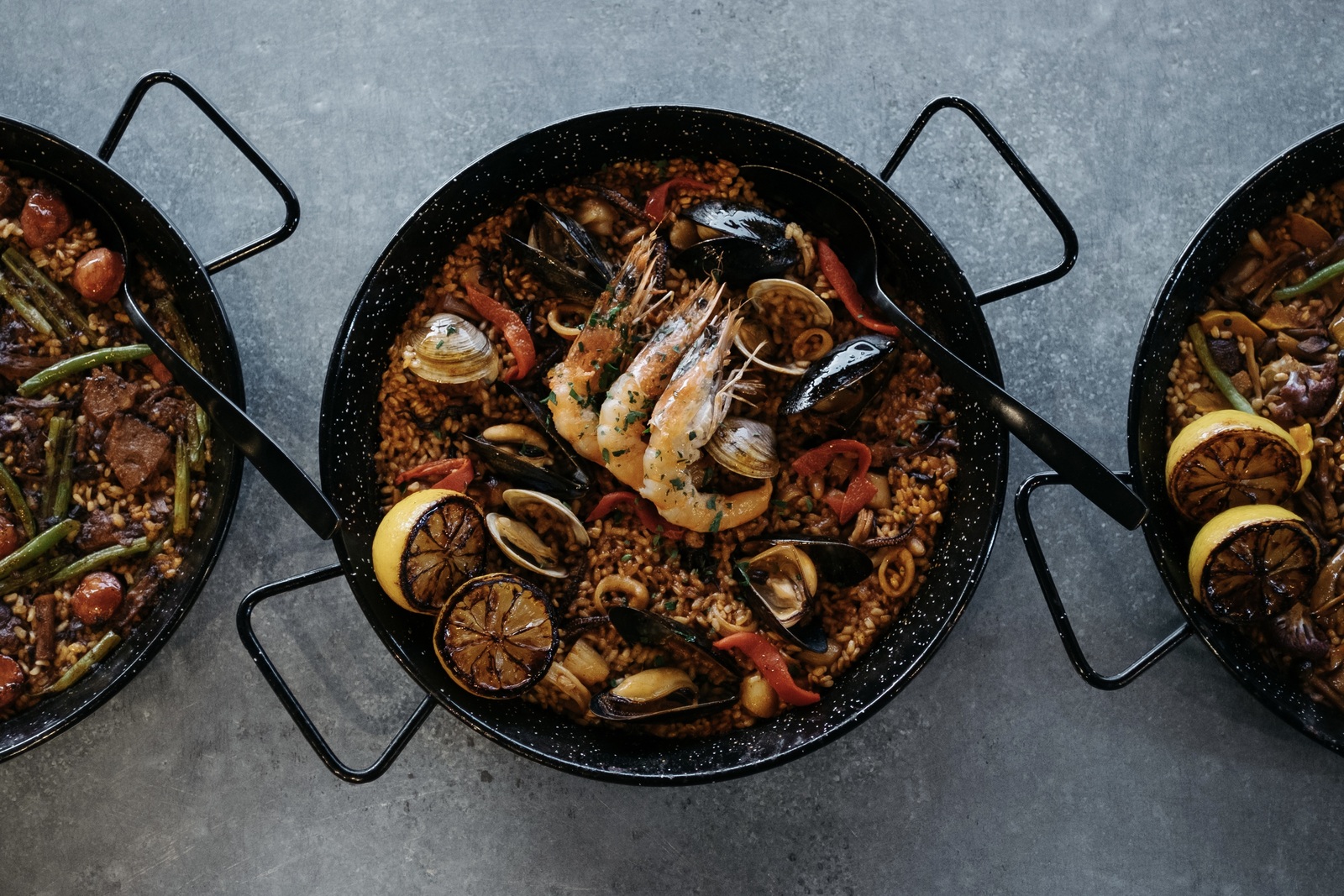
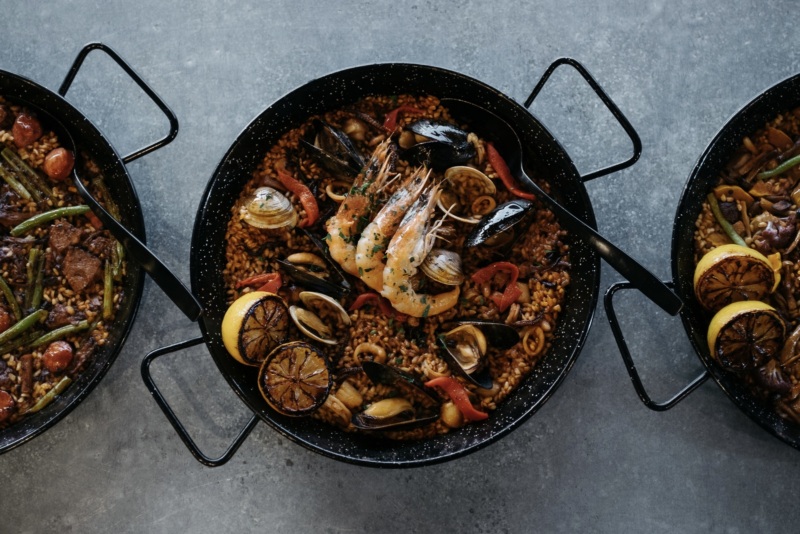
Resy: The current location of Gasolina is actually the second location, correct? You’ve moved?
Sandra Cordero: Yes, I opened Gasolina in 2015 in the first location, which was a very small shop on Ventura Boulevard. It was 750 square feet, and we only did breakfast and lunch there. Then we created something called Paella Night — it was on the sidewalk, we would serve paella once a month for two nights, and that kind of blew up. We started taking over the neighbor’s sidewalk, so we thought, “Oh, we got something here.” I was really excited to launch dinner. That’s when we found a much bigger space with indoor dining — we have about 45 seats indoors — and 30-something outside on the patio. We moved here in November 2019, only to be shut down three months later when the pandemic hit.
Such unlucky timing!
SC: Yeah, like for everyone else, that was a crazy time. We launched our first dinner series as a to-go box — which was very sad — but I got totally obsessed with how to cook it so when it was heated up at home, it would still be right. Then we started feeding hospital workers, and we did that for over two years. We did literally thousands and thousands of meals a week. So, that became this whole other operation that had nothing to do with the restaurant that I dreamed of creating, but, you know, it got us through the pandemic. I’m so grateful. We never had to close down. We never had to lay off people. We just kept going. And then when things got back to normal last year, we were open, and we were able to properly launch dinner at the restaurant.
For me, the best way to do that is to share a meal and break bread and meet new people. We’re valuing that in a new way again.— Sandra Cordero
It sounds like a story of continual change and evolution for Gasolina. Has your relation to the community changed at all over these last eight years?
SC: The community has been supportive from the beginning. One thing that really surprised me — because we had an open kitchen at the first location — was people would see me in the kitchen and they’d say, “I just want to thank you for opening in Woodland Hills because I feel like I’m back in Europe,” or “I feel like I’m in New York,” or “It’s just not like anything here in the Valley,” you know? And then it kind of became the joke: I’m bringing Europe to the Valley. When we moved to the bigger location, the first weekend we had a line out the door. It was insane.
Scott Baker: In the early days, a lot of people in the community didn’t know anything about Spanish food or the ingredients. Sandra had to really walk people through how to eat, what things were, and devote the time to educating our audience. It was the same thing with coffee and wine. And we found that the community then really responded to it and supported us. It’s really gratifying that they’ve come along with us.
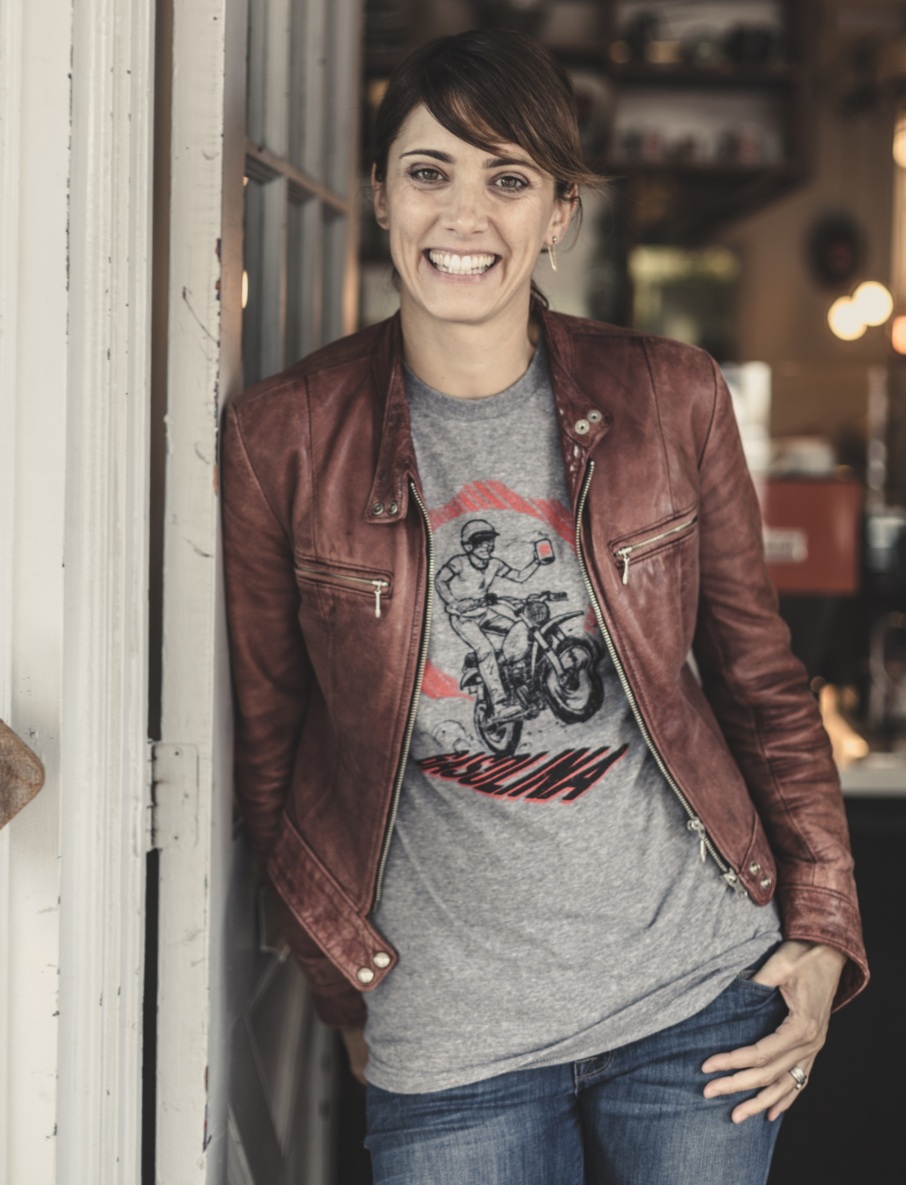
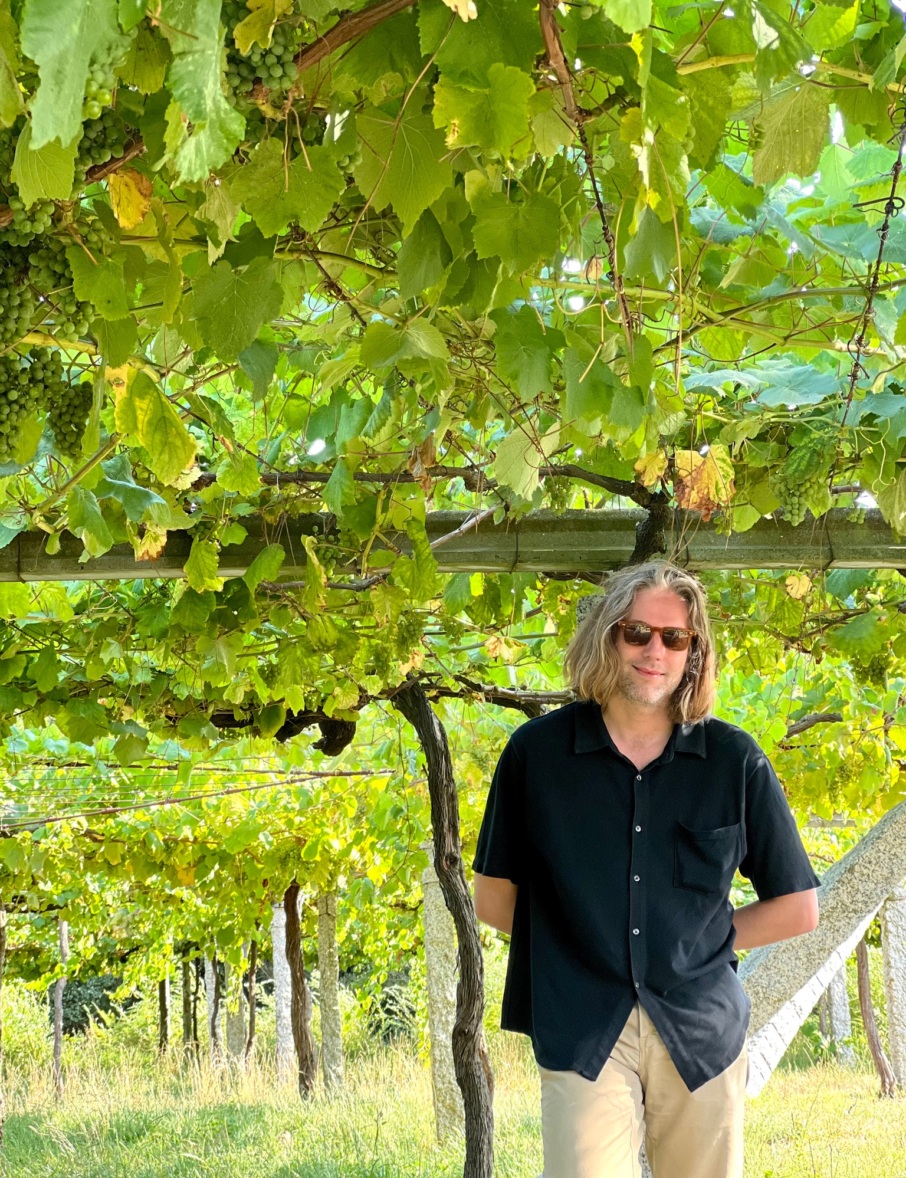
Scott, how did you first hear about Gasolina? And what made you want to join?
SB: I joined in the middle of the pandemic, when I was out of work. By happenstance, a recruiter I had been talking to connected me with Sandra because I didn’t want to work in the same sort of place that I’d previously been. I was looking for something with a little more local concentration and good values, both in how they treat their employees and how they connect with guests. Sandra had been spending a lot of time advocating for women in restaurants and for a living wage for employees. I had tried and failed to get some of these programs like service charges working at previous restaurants. We met and it just seemed perfect. And it’s been so much better than I could have imagined.
The neighborhood has changed a lot over the last few years and is undergoing its own rejuvenation. How has that affected you?
SC: Younger families have been moving into the neighborhood, and people who have traveled more and understand what we’re doing. When we finally got our wine and beer license, Scott was going to really small vineyards and asking if they have respectable practices and [making sure] that they really aligned with how we treat our food and everything else in the restaurant. I remember we sat down and I was like, “Okay, are we doing this? In Woodland Hills? Are we going for an all-natural list?” And [Scott] was like, “Yeah, let’s do it.” So we just went for it, and there was a lot of education, but guests are coming in and it’s really fun.
Spanish food is having a moment in L.A. right now. What’s your take?
SC: It’s been great. I was shocked when I first moved here — I lived in Europe, and then New York, which has a good amount of Spanish restaurants, and when I came here I thought, why is there no Spanish food? L.A. is so big. I think it’s really good, though, that it’s finally coming all the way to the West Coast and down here, you know, where we are. I just think that the more of it people are more willing to try the more it becomes normal, like let’s just go and eat some tapas tonight or some paella, right? The same as going out for pizza or pasta. That’s how I would like to see it.
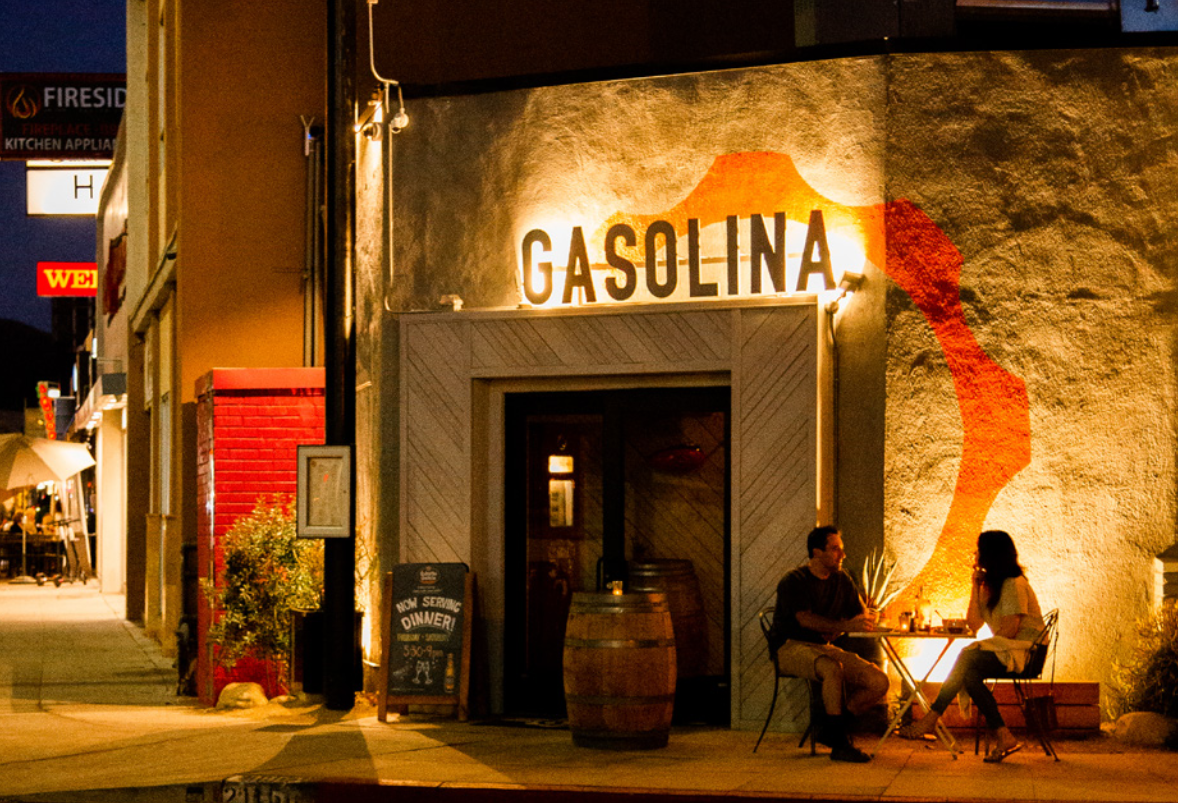
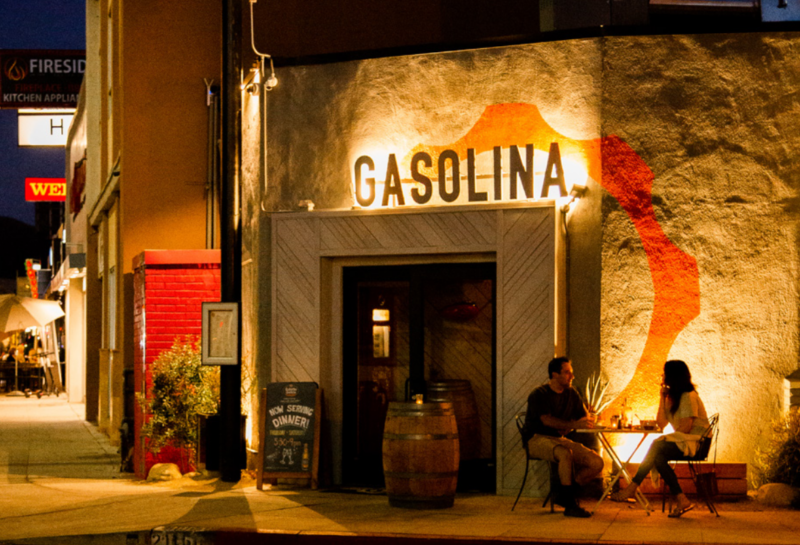
If we can pull back even further, what’s your assessment of the city’s dining scene in this post-pandemic world? Where are we now?
SC: I think everybody having to be locked up and being apart, it really made me appreciate the time that you can be together with friends. Obviously, for me, the best way to do that is to share a meal and break bread and meet new people. We’re valuing that in a new way again, because it’s so easy to forget when everything is moving so fast, and the world and technology are so fast. L.A is such a destination city, so to be able to meet a stranger in a restaurant — I feel like that’s the way we’re going. We’re going to see old-school restaurants as a reaction after the pandemic.
What’s your favorite dish on the Gasolina menu?
SC: I think the paella, because we just started serving that on a daily basis in January this year and it’s been really fun.
SB: I would say the gambas. It’s a classic Spanish racion with shrimp, garlic, olive oil, and we have some guindilla and black pepper. It’s delicious. Really hearty, but not heavy food, and there’s a little bit of spice, which is unusual for Spain and for our menu, certainly.
Can you tell us about the new restaurant you opened?
SC: Yeah! We just opened Xuntos in Santa Monica on Santa Monica Boulevard. The concept is different from Gasolina — it’s a dinner restaurant only. We’re doing pintxos and tapas, and we’re focusing mainly on the northern regions of Spain. So, food from Galicia, and then obviously pintxos are from the Basque region, and then adding some Catalan fan favorites, too. All small shared plates.
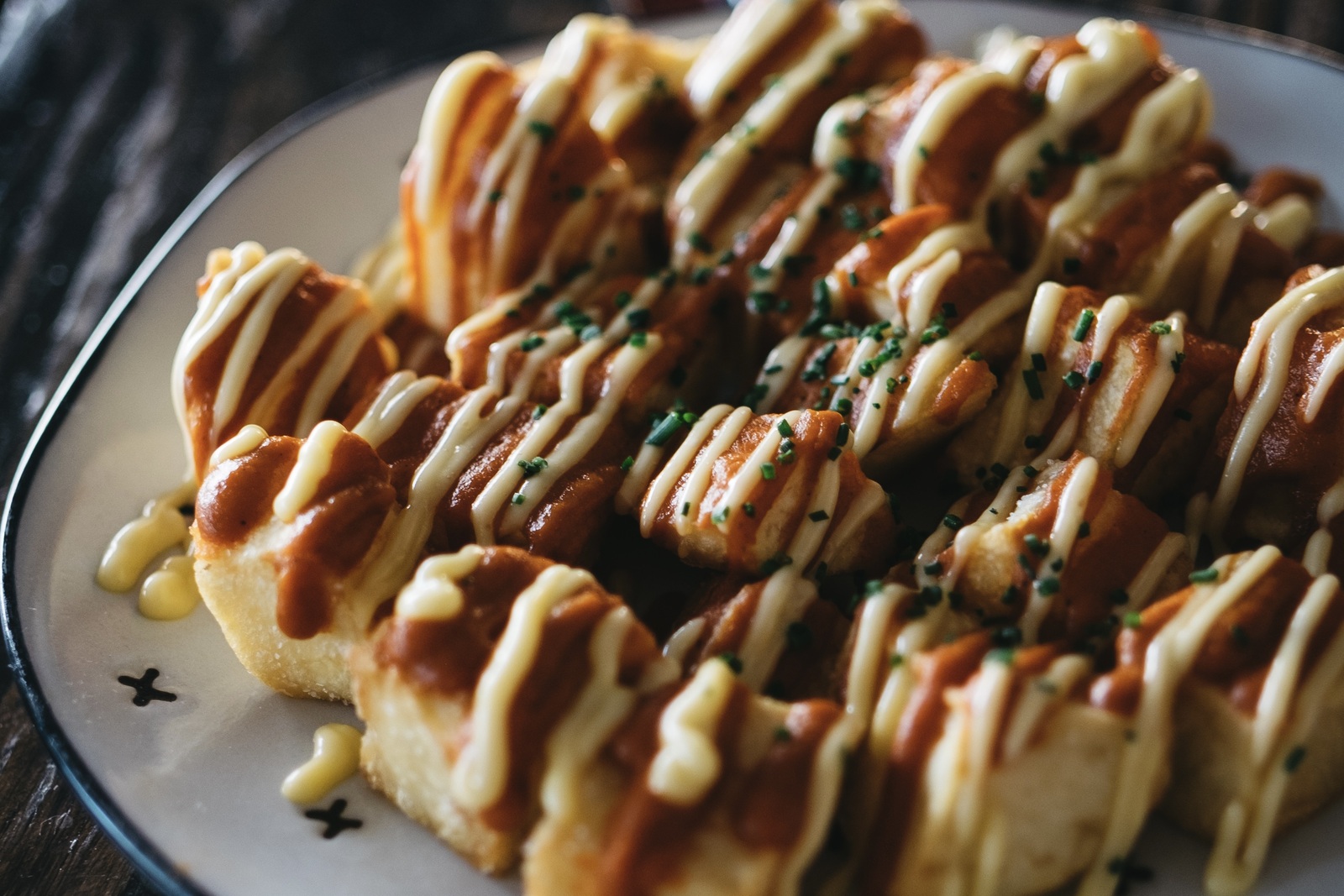
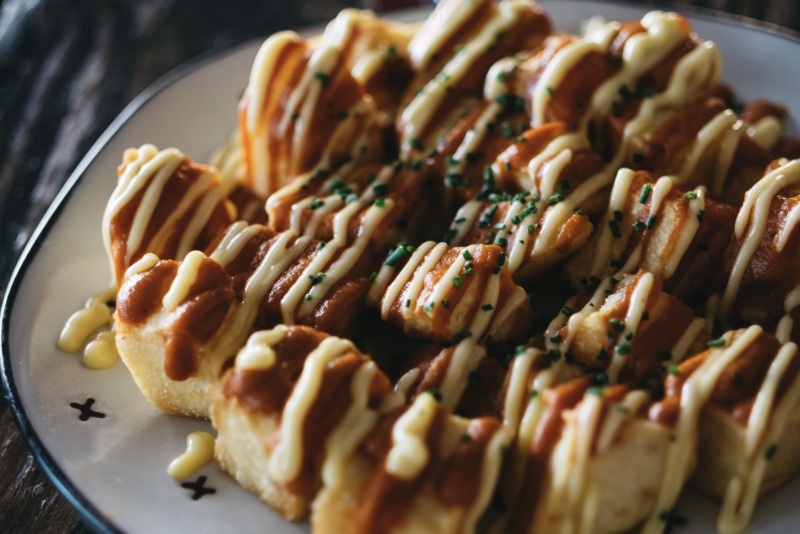
Finally, what’s been your favorite part of the whole Gasolina experience?
SC: That’s a really hard question. I think building community around the restaurant — with the guests and also the staff. It’s been an amazing adventure with big ups and downs. That’s as a restaurateur. As a chef: creating food and dishes, you don’t know if people are going to like it until you do it. Now, eight years in, people drive straight from the airport. They tell me, “I had to come and get my Gasolina.” So, getting that kind of feedback, because when I really thought about what kind of restaurant I wanted to open, I wanted to open a place that people think of as a second home.
SB: For me, it’s what Sandra is saying about having a place that feels like home — where you can relax. Maybe relax isn’t the right word, but you still feel comfortable, whether we’re in the middle of service or getting ready or after work. That’s one thing that’s very important to me and very hard to find.
But also, working for Sandra, it’s really important for her that everyone has a voice in what’s going on. So I feel heard, and I have input on things, but it’s not just about me. It’s all the other employees at Gasolina. Sandra really cares what people think, number one, and really will listen if people have suggestions or complaints or whatever. She’s super sensitive to that. And I think that’s pretty unusual, at least in my experience. So that’s definitely been a highlight for me.
Oren Peleg is a journalist and screenwriter. He currently contributes to Eater LA, Los Angeles, The Infatuation, and hosts the Not Billable podcast. You can follow him here. While you’re at it, follow Resy, too.


